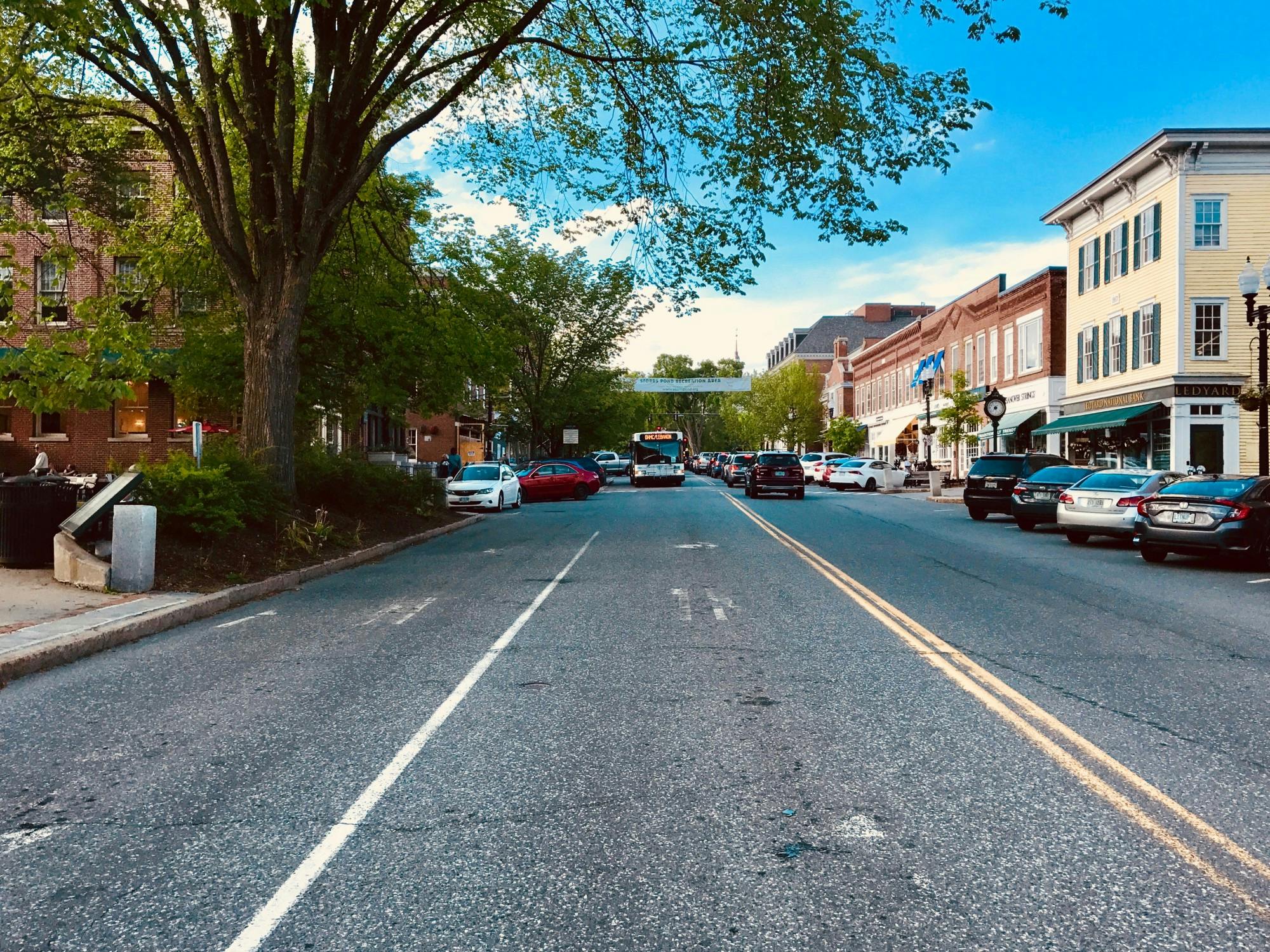As the effects of inflation, labor shortages and the prospect of a recession loom over the national economy, Hanover business owners said they have faced unique challenges in finding ways to adapt their business models. Business owners also mentioned that the high living costs of the Upper Valley and seasonal flow of business around the Collegepose further difficulties with employment.
According to The New York Times, the consumer price index, which measures general prices of goods and services in an economy, was 8.5% higher in March 2022 than it was a year ago, marking the highest inflation rate in 30 years.
The effects of high national inflation are playing out in Hanover, where local business owners said they are grappling with expensive shipping costs and production delays.
Bryan Smith, owner of Hanover poster store rpmNH, said plastic top holders for posters have doubled in price since the start of the pandemic, while Lemon Tree Gifts owner Melissa Haas said the cost of shipping for her business has “quadrupled” in the past six months.
“I don’t think there’s a single company I’ve worked with who hasn’t been affected [by inflation],” Haas said. “Some companies are still putting heavy surcharges on overseas shipments to account for shipping costs … and they’re getting more and more comfortable [doing so].”
Economics professor Elisabeth Curtis said that while the causes of the current wave of inflation are not fully understood, it is likely driven by strong consumer demand and supply chain shortages. In addition, inflationary prices may have been “exacerbated” by the ongoing war in Ukraine which has disrupted food and energy markets. Curtis also pointed towards the possibility of a wage-price spiral — a situation in which consumers spend more now in expectation of future price increases — which creates “self-fulfilling inflationary expectations.”
“When I teach my [macroeconomics] class, I’ve had to teach [inflation] in an imaginary situation,” Curtis said. “We haven’t had inflationary pressures for a very long time, so we’ve almost forgotten what inflation looks like and how to live with it.”
In response to rising production costs, Haas said she is trying to “meet in the middle” by increasing prices by “a few dollars here and there” for customers, but she said she has stopped purchasing some items because of large cost increases.
Hanover Strings manager Duncan Carroll said that the store has managed to avoid significant price increases since they stocked up on inventory at the beginning of the pandemic.
“We could tell there was something serious going on with the pandemic and that our suppliers would be completely closed,” Carroll said. “We bought a ton of stuff at that point, and that’s the only reason we made it through the pandemic — because we acted really quickly.”
In addition, both Smith and Haas said that ongoing supply chain shortages have affected their ability to purchase items. Haas added that because of the war in Ukraine and lockdowns in China, some manufacturers have been unable to produce items like manicure sets or nail files, which they have “typically been able to get for years.”
She added that there are significant production delays for some items now, noting that she has only recently received items which were originally slated to arrive last Christmas.
“I don’t know if I can buy them again in time [for next Christmas], so I’m [buying] things now that I wouldn’t normally,” she said.
Beyond the problems created by inflation, Curtis said that “the [United States] is closer to full employment than ever,” but there is still a persistent “mismatch” in the labor market as employers cannot find employees with desired skills. She added that Hanover’s businesses face unique challenges as most full-time job seekers, apart from those associated with the College, do not live in Hanover due to the high cost of living.
Smith said that although he has not faced difficulties hiring part-time workers, he has been unable to fill full-time management positions. Similarly, Haas said the term “labor shortage” is the “understatement of the century,” adding that “it’s been a huge problem” as she has been unable to hire a manager for several months now.
Curtis said that the “gazillion-dollar question” now is whether the U.S. will soon head into a recession. She noted that economists disagree on whether interest rate increases can rein in inflation, adding that the Federal Reserve must strike a balance by understanding the causes of inflation and acting appropriately.
The last time inflation rates were this high — the late 1970s and early 1980s — the Federal Reserve sharply increased interest rates and tightened monetary policy to reduce inflation, contributing to a recession and increased unemployment rates, according to Curtis.
Smith expressed worries about the potential effects of a recession. He added that rent is “very high” and that foot traffic to his store is inherently cyclical, as prospective students and tourists mostly visit from May to October.
Haas said that she has not thought about the possibility of a recession.
“It’s just too much to think about,” she said. “I feel like I have to live in the moment, think one day at a time right now.”
Carroll expressed optimism about the future.
“There’s no rushing your way out of the pandemic,” he said. “You just have to stay busy and stay focused … We’re going to come out of this so much stronger and better than we were before.”




